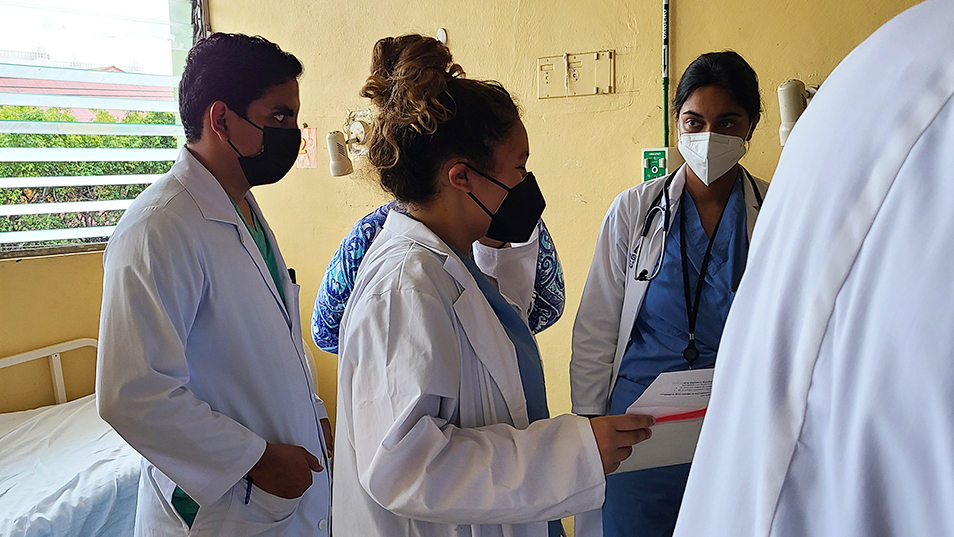Contact us
401 W. Kennedy Blvd.
Tampa, FL 33606-13490
(813) 253-3333
This summer was the first time Jahnel Villalba ’24 had been to Nicaragua and the first she’d been in a surgical room as part of the medical staff. The UT junior, a double major in allied health and biology, joined a team that included part-time faculty in the chemistry department, Dee Dee Brumfield, for the most hands-on and career-affirming experience of her collegiate journey.

Jahnel Villalba ’24 (center) speaking with a patient in Nicaragua. Photo courtesy of Dee Dee Brumfield
This summer was the first time Jahnel Villalba ’24 had been to Nicaragua and the first she’d been in a surgical room as part of the medical staff. The UT junior, a double major in allied health and biology, joined a team that included part-time faculty in the chemistry department, Dee Dee Brumfield, for the most hands-on and career-affirming experience of her collegiate journey.

Dr. Jeff and Dee Dee Brumfield in the hospital in Nicaragua. Photo courtesy of Dee Dee Brumfield

Dee Dee Brumfield (center) said that what separates Villalba (front, with headband) from other students who have interned in the past, is her calm demeanor. Photo courtesy of Dee Dee Brumfield
Have a story idea? Contact Brianna Kwasnik, Digital Content Editor/Writer
Read more UT Life stories.
Subscribe to News and UT Life.
More UT News